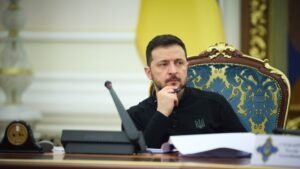
President of Ukraine Volodymyr Zelensky signed a decree enacting the decision of the National Security and Defense Council to impose sanctions against 95 individuals and 70 legal entities, most of whom are citizens and residents of the Russian Federation.
The relevant decree of the President of Ukraine No. 8/2026 of January 3, 2026, was published on the website of the Office of the President.
It is noted that the individuals and companies against whom sanctions have been imposed are associated with servicing Russia’s state defense orders and the activities of its defense-industrial complex. Among them are enterprises and their managers who manufacture and supply products in the fields of communications, electronic warfare, and microelectronics for the Russian defense-industrial complex and security forces.
Sanctions have been imposed on industrial enterprises in the chemical, mining, metallurgical, and fuel and energy sectors of the Russian Federation.
“The restrictions imposed should complicate the servicing of the Russian military-industrial complex and limit its capabilities in the production of weapons and military equipment used in the war against Ukraine. Our country will continue to work with partners to synchronize Ukrainian sanctions in the jurisdictions of partner countries. Some of the items will be included in the 20th package of EU sanctions, which is currently being prepared,” the statement said.
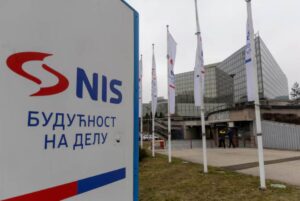
According to Serbian Economist, the Office of Foreign Assets Control of the US Department of the Treasury (OFAC) has issued a temporary license to Serbian oil company NIS, controlled by Russian shareholders, to continue operating until January 23, 2026, said Serbian Minister of Mining and Energy Dubravka Djedovic-Handanovic.
According to her, the decision means the resumption of operations at the Pančevo refinery after a 36-day pause. U.S. restrictions, which came into effect in the fall, had earlier blocked oil supplies via the refinery’s only crude import route – through Croatian pipeline operator JANAF.
NIS operates a refinery with a capacity of 4.8 million tons per year and the largest network of gas stations in Serbia (327 stations), providing about 80% of fuel consumption in the domestic market.
Earlier OFAC gave NIS a deadline of March 24 to negotiate the sale of the Russian owners’ stake; in the company’s capital structure Gazprom owns 11.3%, Gazprom Neft – 44.9%, the Serbian state owns 29.9%. Serbian President Aleksandar Vucic reported that Gazprom was in talks with Hungary’s MOL about a possible deal.
https://t.me/relocationrs/2042

The Chinese Foreign Ministry announced sanctions against 10 individuals and 20 US defense companies in response to the latest US arms deliveries to Taiwan. This was stated in a statement by the Chinese Foreign Ministry, released on Friday and quoted by Reuters.
The restrictions apply, in particular, to Boeing in St. Louis, as well as a number of other US defense contractors. The sanctions include freezing any assets of companies and individuals in China and prohibiting Chinese legal entities and individuals from doing business with them. In addition, executives on the sanctions list are barred from entering mainland China, as well as Hong Kong and Macau.
Beijing linked the decision to Washington’s approval of a large package of arms supplies to Taiwan worth more than $10 billion, including HIMARS multiple launch rocket systems, artillery, and other types of weapons to strengthen the island’s defenses.
The Chinese authorities have stated that they consider US arms supplies to be interference in the internal affairs of the PRC and a violation of the “one China” principle, promising to continue to take “decisive measures” in response to the arming of Taiwan.
The Experts Club think tank previously compared the military capabilities of China and Taiwan. For more details, see https://www.youtube.com/shorts/kFdxOOC4_Ss
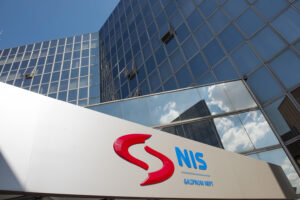
The US has postponed sanctions against Serbian oil company NIS for the last time: a key company could be at risk
The United States has postponed for the fifth and final time the imposition of sanctions against Serbian oil company Naftna Industrija Srbije (NIS), which is controlled by Russia’s Gazprom. According to Reuters, the new exemption from the sanctions list has been extended until the end of August. No further extension is planned after that.
Serbian Energy Minister Dubravka Čedović Handanović said that Belgrade wants to keep oil supplies stable and called “the exclusion of NIS from OFAC sanctions a priority.” She said that dialogue between the US and Russia remains an important condition for this.
NIS is a strategically important company for the Serbian economy. It operates the country’s only oil refinery in Pančevo (near Belgrade), as well as the largest network of gas stations and logistics infrastructure in the fuel sector.
According to the ownership structure:
• 44.9% of NIS shares are owned by Gazprom Neft (Russia),
• 11.3% by Gazprom,
• 29.9% by the Serbian government,
• the rest by minority investors.
It was Russian control over the majority of shares that led to NIS being sanctioned by the US Treasury Department’s Office of Foreign Assets Control (OFAC). Initially, the company was to be completely blocked in January 2025, but since then it has received four temporary licenses to continue operations.
In July 2025, NIS applied for a temporary license for the fifth time and received it for one month, until the end of August. During this period, Gazprom Neft was again reminded of the requirement to withdraw from the Serbian company’s shareholders.
Analysts note that if the sanctions are imposed in full, this could destabilize the fuel market in Serbia, create logistical disruptions, and cause oil prices to rise.
An alternative could be a transfer of control from Russian shareholders to European or Middle Eastern investors, but negotiations on this issue have not yet been officially confirmed.
NIS is a leader in the Serbian petroleum products market and is actively developing its operations in Romania, Bulgaria, and Bosnia and Herzegovina.
The company is also involved in oil and gas exploration and production, lubricant manufacturing, and power generation.
Source: https://t.me/relocationrs/1228
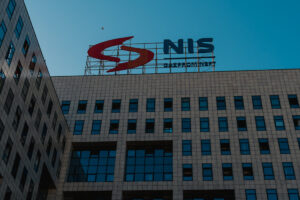
The US Treasury Department has again granted a postponement until July 29 on the application of sanctions against Serbia’s NIS, according to a statement from the company. Energy Minister Dubravka Jedovic-Handanovic, quoted by Serbian media, said that “sanctions against NIS have been officially postponed, as confirmed in writing last night.”
Serbia has previously received several postponements of sanctions against NIS from the US, most recently until June 27.
As reported, on January 10, the US imposed sanctions against two Russian oil companies, Gazprom Neft and Surgutneftegaz, as well as their subsidiaries. The SDN List also includes Gazprom Neft’s Serbian subsidiary, NIS. The US then postponed the imposition of sanctions against NIS.
At the end of February, Gazprom Neft transferred 5.15% of NIS shares to Gazprom. Gazprom Neft now owns 44.85% of NIS shares, while Gazprom owns 11.3%. Another 29.87% of NIS shares are owned by Serbia, with the remainder held by minority shareholders.
Serbian President Aleksandar Vučić reported that the US is demanding the complete withdrawal of Russian capital from NIS. He recalled that in 2008, the Serbian government sold control of NIS to Russia’s Gazprom Neft, and over the past years, the Russian company and NIS have contributed to significant revenues for the Serbian budget, as well as the development of many projects.
NIS is the only company in Serbia engaged in the exploration and production of hydrocarbons, and it also owns a large oil refinery in the city of Pančevo. The company dominates the Serbian petroleum products market, and the NIS network of gas stations is present in Bosnia and Herzegovina, Bulgaria, and Romania, with a total of more than 400 stations.
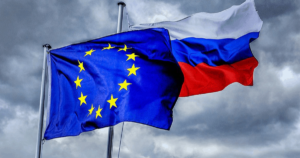
The European Union has approved a 17th package of sanctions against Russia, aimed at increasing pressure on the Russian economy and limiting opportunities to circumvent previously imposed restrictions. A key element of the new package is the introduction of sanctions against Russia’s so-called “shadow fleet” — a network of ships used to circumvent sanctions and export oil.
Sanctions against the “shadow fleet”
As part of the new sanctions package, the EU has imposed restrictions on around 200 vessels linked to Russia’s “shadow fleet.” These vessels, often old and poorly insured, are used to transport Russian oil in circumvention of the restrictions in place, including a price cap of $60 per barrel.
Sanctions against companies and individuals
The new sanctions package also includes:
31 companies involved in arms supplies and sanctions evasion.
75 individuals linked to the Russian military-industrial complex, including judges involved in cases against opposition figures.
Financial institutions supporting Russia’s military actions.
Protection of critical infrastructure
The EU has also imposed sanctions on organizations and individuals involved in cyberattacks, human rights violations, and sabotage of critical infrastructure, including submarine cables and energy facilities.
Outlook
Despite the introduction of the 17th package of sanctions, additional measures are being discussed, including the possible introduction of 500% tariffs on Russian oil imports to countries that continue to purchase it. Restrictions on imports of liquefied natural gas (LNG) from Russia are also being considered.